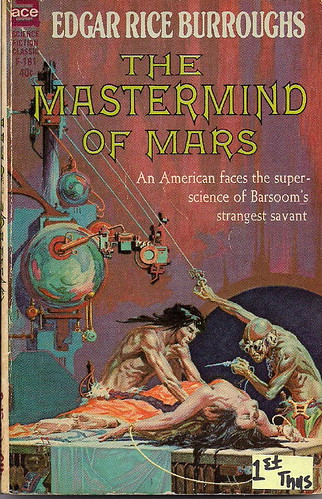 This year I have been driving just as long as I haven't been driving. My plans so far are to drink a lot of coffee, eat a lot of meatloaf, and then drink some beer and possibly take a tequila shot. Yay birthday!
This year I have been driving just as long as I haven't been driving. My plans so far are to drink a lot of coffee, eat a lot of meatloaf, and then drink some beer and possibly take a tequila shot. Yay birthday!
Saturday, November 29, 2008
32 years of excitement
 This year I have been driving just as long as I haven't been driving. My plans so far are to drink a lot of coffee, eat a lot of meatloaf, and then drink some beer and possibly take a tequila shot. Yay birthday!
This year I have been driving just as long as I haven't been driving. My plans so far are to drink a lot of coffee, eat a lot of meatloaf, and then drink some beer and possibly take a tequila shot. Yay birthday!
Wednesday, November 26, 2008
Tuesday, November 25, 2008
The Prague Orgy (1985) and Zuckerman Bound (1985)
 Finished! After reading the three novels and novella that make up Philip Roth's Zuckerman Bound: A Trilogy & Epilogue, I sort of feel like this has turned into the Nathan Zuckerman blog. 800 pages of masculine Jewish angstiness is kind of a lot all at once, and it might have been a better plan to break up these novels with a palette cleansing pulpy something between each onslaught.
Finished! After reading the three novels and novella that make up Philip Roth's Zuckerman Bound: A Trilogy & Epilogue, I sort of feel like this has turned into the Nathan Zuckerman blog. 800 pages of masculine Jewish angstiness is kind of a lot all at once, and it might have been a better plan to break up these novels with a palette cleansing pulpy something between each onslaught.The final entry in this batch of Zuckerman books (Roth wrote five more, most recently 2007's Exit Ghost, which he says is the last one) is The Prague Orgy (1985), an epistolary novella that has our hero meeting a gregarious Jewish Czech exile in New York. The Czech is also a writer, and is traveling with a beautiful and sad Czech actress. After a bit of conversation and quite a few drinks, Zuckerman is set on a quest to Prague to try and get the Yiddish manuscripts written by the author's martyred father (killed by the Nazis) away from his beautiful and sad (and a bit crazy) estranged wife, Olga.
Once in Prague, Zuckerman soon finds himself in the cynical and depraved world of a group of Czech intellectuals who are consistently repressed and constantly spied upon by the Communist government and their fellow citizens. Their most satisfying activity appears to be having sex, asking to have sex, and talking about having sex, so Zuckerman fits right in. Zuckerman quickly finds Olga, and she admits to having the manuscripts, but will Zuckerman have sex with her? And why does the doorman in the hotel act so oddly?
The novella provides a partial respite from the inside of Zuckerman's mind, which has been extensively explored in the three previous novels (especially The Anatomy Lesson) and nicely explores some of Roth's common themes including fame, the social responsibility of an author, and sex.
Although it was a bit tiring at times, I did really enjoy this group of novels (again, especially The Anatomy Lesson), and I plan to read some more Zuckerman (and other Roth) soon, although I think I'll give it a little time before I jump in.
[All my Zuckerman reviews can be found here.]
Sunday, November 23, 2008
The Spacenecks
 Many myths surround the creation of the lovely sounds of The Spacenecks, but the most plausible and entertaining may be this one:
Many myths surround the creation of the lovely sounds of The Spacenecks, but the most plausible and entertaining may be this one:"Josh Spaceneck, Joel Spaceneck, and Jamey Spaceneck were three feral children found in the woods behind a Ben and Jerry's ice cream shop. Taken in and raised by a kindly rock and roll band, the trio seemed to be deaf-mutes. However, when exposed to strobe lighting and fog, the Spaceneck boys picked up their foster parents' instruments and unleashed a tsunami of blistering rock and roll. The government officially denies the existence of The Spacenecks to this very day."
Poor quality video of live Spaceneck hijinks and rocking available here.
Saturday, November 22, 2008
Gifty
 I might have the best mail carrier in the world. Her name is Peggy. Yesterday Dr. M drove away just as she was getting to our apartment (to come pick me up from work -- thanks Dr. M!), but we had a bunch of little packages and she doesn't like to leave them by our door. To save us a trip to the post office, Peggy made a special trip by our apartment this morning to drop off our packages. She wasn't even delivering the rest of the mail for the apartment building -- she just stopped by here for us. Thanks Peggy!
I might have the best mail carrier in the world. Her name is Peggy. Yesterday Dr. M drove away just as she was getting to our apartment (to come pick me up from work -- thanks Dr. M!), but we had a bunch of little packages and she doesn't like to leave them by our door. To save us a trip to the post office, Peggy made a special trip by our apartment this morning to drop off our packages. She wasn't even delivering the rest of the mail for the apartment building -- she just stopped by here for us. Thanks Peggy!Most of the packages were presents I'm trying to be smart about ordering early (I am actually almost done with my xmas shopping and I'm pretty proud of that). And in one of the packages were these awesome vintage watch movement hair pins that I bought as a birthday present for myself (a week early, but I don't mind the promptness). They look even cooler in person. Thanks me!
Friday, November 21, 2008
Mellowed
Some fellow archivists and I had dinner/late happy hour at the Mellow Mushroom on Guadalupe last night.
Cons:
LOUD
Long wait for food
Stupid theme
Chainy
Pros:
$1.25 Lone Stars all the time
$3 well drinks all the time
Food was fine (I had a BLT), but I will go back for a cheap drink any day. I'm a sucker for a bargain.
Cons:
LOUD
Long wait for food
Stupid theme
Chainy
Pros:
$1.25 Lone Stars all the time
$3 well drinks all the time
Food was fine (I had a BLT), but I will go back for a cheap drink any day. I'm a sucker for a bargain.
Wednesday, November 19, 2008
The Anatomy Lesson (1983)
 In Philip Roth's The Anatomy Lesson (1983), the third book in the Zuckerman Bound trilogy (which will close with The Prague Orgy, a novella), our hero, the successful author Nathan Zuckerman, is in pain and all out of ideas.
In Philip Roth's The Anatomy Lesson (1983), the third book in the Zuckerman Bound trilogy (which will close with The Prague Orgy, a novella), our hero, the successful author Nathan Zuckerman, is in pain and all out of ideas.His father died at the end of the last book, and his beloved mother died three years ago. His only other family, a brother with whom he was never that close, has completely cut off ties with him, blaming their father's death on the shame caused the family by Zuckerman's last book, Carnovsky. But more than all that, more than anything else, is the horrible pain in his neck and shoulders that has incapacitated him for the past 18 months. No doctor can diagnose it. No alternative therapies help it. The best he can do is take Percodan, drink vodka, and spend most of his time lying flat on his back on a playmat he has installed in the center of his living room. Since he is currently between wives, Zuckerman has accumulated a set of four women (his financial consultant's wife, an heiress attending the nearby college, a rather hilariously depressive Polish immigrant who treats Zuckerman at the hair loss clinic, and a wholesome artist who lives in the country) who come to his apartment and cook him food, run his errands, listen to his complaints, tell their stories, and not infrequently have sex with him in various pain-free positions. They are, however, of little comfort to Zuckerman who can't write and isn't even sure if he still wants to.
The sometimes stifling inaction of the first half of the book explodes into a drug-fueled trip to Chicago in the second half of the book where Zuckerman spends part of his time pretending to be a pornographer and the rest of his time trying to get into medical school. As you might imagine, neither of these pursuits has really come to anything by the end of the novel, although after a nicely constructed climax, Zuckerman does find himself spending time with the hospital interns as they go through their rounds.
Zuckerman is a jerk, insensitive, difficult to please, unyielding, parasitic, and cruel. He is also often very funny, lonely, misunderstood, forgiving, and easily hurt. His art has been primarily motivated by his tension with a hard working Jewish father who never understood his son, and now (after a crushing last word) is dead, and his Jewish neighborhood in New Jersey that all the Jews moved away from. He has plenty of money. He's famous. But he is unable to write, unable to be satisfied, and even if he stops writing and becomes a doctor, it is hard to picture Nathan Zuckerman ever being happy.
Maybe The Prague Orgy has a happy ending?
Uncomfortable equation
((Flu shot + tetanus shot) left arm) + ((blood draw) right arm) = sore.
However, as an added bonus, my tetanus shot has also protected me from diphtheria and whooping cough. Thanks science!
However, as an added bonus, my tetanus shot has also protected me from diphtheria and whooping cough. Thanks science!
Thursday, November 13, 2008
Wednesday, November 12, 2008
Zuckerman Unbound (1981)
 In the second book in the Zuckerman Bound trilogy, Zuckerman Unbound (1981), it is 1969 and Philip Roth's fictional author, Nathan Zuckerman, has found just the kind of success with his new novel, Carnovsky, that hounded Roth himself after the publication of Portnoy's Complaint (1969).
In the second book in the Zuckerman Bound trilogy, Zuckerman Unbound (1981), it is 1969 and Philip Roth's fictional author, Nathan Zuckerman, has found just the kind of success with his new novel, Carnovsky, that hounded Roth himself after the publication of Portnoy's Complaint (1969).Carnovsky is a coming-of-age story in which the titular hero grows up in New Jersey, comes of age, and has a family, experiences, and relationships that are quite similar to those of Nathan Zuckerman (so also quite similar to those of Roth). Naturally everyone assumes that his stories of Carnovsky and his neuroses, sexual desires, and horrible parents are all reflected in Zuckerman's real life. Zuckerman, on the other hand, would be the first person to deny all that -- and dealing with the accusations from his friends, family, and perfect strangers, not to mention his sudden wealth and fame, have left Zuckerman generally unbound.
Throw in a little Alvin Pepler (a New Jersey veteran with a photographic memory who made it big on a 1950s game show, lost it all, gave evidence against the show's producers, and then quietly went just a little bit crazy -- and who is now one of my favorite literary characters of all time), a little starlet dating, an earnest soon-to-be ex-wife, a sick father, and a mother who just wants Zuckerman to be happy and you have a pretty complicated, funny, occasionally frustrating, and ultimately rewarding novel.
Now on to round three!
Saturday, November 08, 2008
The Ghost Writer (1979)
 As you might remember, Dr. M and I have concocted a lifelong reading goal of reading all the books listed in Harold Bloom's The Western Canon. Well, I've finally embarked on my second book from the list (alphabetized by title, starting at the end): Zuckerman Bound: A Trilogy and Epilogue by Philip Roth. This is a collection of Roth's first three novels (and one novella) in his Zuckerman series. Since they were all published separately, I've decided to write about them separately.
As you might remember, Dr. M and I have concocted a lifelong reading goal of reading all the books listed in Harold Bloom's The Western Canon. Well, I've finally embarked on my second book from the list (alphabetized by title, starting at the end): Zuckerman Bound: A Trilogy and Epilogue by Philip Roth. This is a collection of Roth's first three novels (and one novella) in his Zuckerman series. Since they were all published separately, I've decided to write about them separately.First in the trilogy is The Ghost Writer (1979), where we follow Nathan Zuckerman, a young writer with a background that closely matches that of Roth himself. Zuckerman has recently cut himself away from his life with a girlfriend in New York and his friendly relationship with his father in New Jersey to live at a writer's retreat in New England and focus on his work. His idol, E.I. Lonoff, a famous older Jewish author, lives in a secluded house near the retreat and Zuckerman writes to him, shares some of his writing, and gets a coveted invitation to join the author and his wife for dinner.
The novel moves along through a series of tensions: between the young writer who wants to impress and the established author who doesn't want to be fawned over; between Lonoff and his wife; between Zuckerman and his recently estranged father; and between everyone and the mysterious young house guest, Amy Bellette, who may or may not be who she says she is.
This is a very tight and narrowly focused novel (my favorite kind), and Roth's character of Zuckerman is the perfect guide through this story of misunderstandings, miscommunications, ambition, desire, disappointment, and routine.
Tuesday, November 04, 2008
The Mastermind of Mars (1928)
 Choo lent me The Mastermind of Mars by Edgar Rice Burroughs (1928) about a million years ago. I put it at the bottom of my pile because it is the sixth book in Burroughs' Barsoom series (hint: Barsoom is what the Martians call Mars), and I had only read the first one. Eventually, though, the cover called out to me too strongly and I decided to just take the plunge. Lucky for me Burroughs completely changes direction in this book, which serves as a pretty much stand-alone entryway into the world of Barsoom.
Choo lent me The Mastermind of Mars by Edgar Rice Burroughs (1928) about a million years ago. I put it at the bottom of my pile because it is the sixth book in Burroughs' Barsoom series (hint: Barsoom is what the Martians call Mars), and I had only read the first one. Eventually, though, the cover called out to me too strongly and I decided to just take the plunge. Lucky for me Burroughs completely changes direction in this book, which serves as a pretty much stand-alone entryway into the world of Barsoom.Our hero, Ulysses Paxton (yes), is dying on a WWI battlefield in France. He has always loved reading Burroughs' books about John Carter and his adventures on Mars, and in his final thoughts he focuses on the stars and thinks about how much he wishes he could have seen this amazing world. Then, through the wonder of astral projection (or something), he wakes up in the compound of a scientist on the red planet. Yay!
The scientist, Ras Thavas, quickly teaches Paxton the Barsoomian language and gives him a new name: Vad Varo. Ras Thavas has perfected a method of transplanting the brain and soul of one person into the body of another, and is charging wealthy Barsoomians tons of money to trade into younger and better looking bodies. He can also bring the dead back to life and transplant limbs and organs. It's a pretty good system really.
Paxton plays along as his lab assistant until he meets Valla Dia, a beautiful and benevolent young woman who has had her body switched against her will with an old and ugly empress. Paxton falls in love with Valla Dia's mind, even though she is stuck inside a crappy body, and vows to reunite her with her proper form. This leads to all kinds of adventures, and Paxton teams up with a revived assassin, a giant ape that has half of a man's mind (one of Ras Thavas' many experiments), and a proud warrior whose body was stolen by an evil courtier to woo away the woman he loved. Confused yet? Top that all off with some pretty funny critiques of religion and the masses and you have a very fun science fiction book that shows Burroughs at the top of his form. An excellent read.
Sunday, November 02, 2008
My new career:
 Zombie make-up artist. The neck wound is just so-so, but I'm not Tom Savini for christ's sake. The face whitening/shading, on the other hand, is excellent.
Zombie make-up artist. The neck wound is just so-so, but I'm not Tom Savini for christ's sake. The face whitening/shading, on the other hand, is excellent.[Further evidence here.]
Subscribe to:
Comments (Atom)

